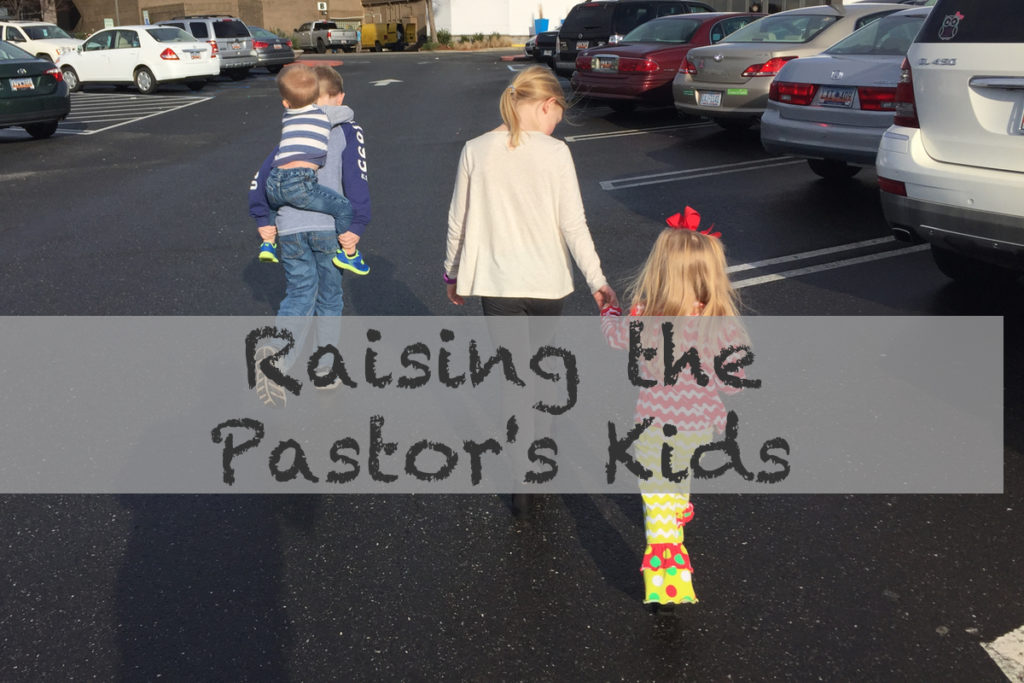I am not a PK (that is Pastor’s Kid or Preacher’s Kid for the uninitiated among us), but I am raising four of them. Since our first son was born 9 1/2 years ago, parenting has been a top priority in our home. When our oldest daughter came along it didn’t take long for us to realize that every kid is different and requires different kinds of parenting. Next month we will finalize adoption of our two youngest children. Foster care and adoption has shown us that we needed to grow as parents and that as different as every kid is, they all need basically the same things.
Each of my four kids share one unique trait in common with each other, but with very few of their friends. Each of my children are a preacher’s kid. In addition to all of the other issues of childhood and adolescence they will face, they will also grow up (for better and for worse) in a preacher’s home. They will grow up with a magnifying glass from their church family focused on them. People will unintentionally expect more from them than from others and their friends will worry how to act when they go to the “pastor’s house.”
My kids are growing up in a wonderful church where I feel that they are insulated from some of the issues that other PKs may experience, but then again, I may be looking a their situation through rose colored glasses.
They still struggle to understand why I sometimes keep odd hours. Some pastor’s kids struggle to understand why there is conflict in the church aimed at their daddy.
I struggle to not overcompensate against showing favoritism to my kids. On this issue, I am fortunate to have people in my church to correct me. Our children’s minister chided me once this way, “it’s OK for the preacher’s kids to get a few extra privileges occasionally.” Lesson learned, they can have a few extra pieces of construction paper.
For Christmas this year, someone gave me a copy of Barnabas Piper’s book, The Pastor’s Kid. In it he shares insights about his experience growing up as a PK that is helping me to more carefully consider how I parent as a pastor.
He also shares rules for PKs that should be read by church members everywhere. I believe in God’s church and I believe that a biblical church is one that is interdependent upon one another in the same way that a family is. As a result, though the primary responsibility of raising children falls on the shoulders of parents, the entire church body accepts a degree of responsibility in raising children within the church to know and love Jesus. That’s why during parent/child dedication services at Malvern Hill we ask for commitment from the church to help parents in the raising of children.
Remember, the goal is not to raise preacher’s kids who represent the church well, but to raise up children who fall in love with Jesus and serve him as adults.
Church, you will do much to determine whether or not your pastor’s kids love Jesus and his bride.
Walk with your pastor as he seeks to lead your congregation and his family If you are a member of Malvern Hill, please continue walk with Angela and I as we seek to raise our kids to not be preacher’s kids, but to be children of God making a difference in the world for the sake of God’s gospel. You can help us to do that and help our kids to find their own identity in Christ by considering the following rules suggested by Barnabas Piper when you talk with PKs:
- Do not ask us “What is it like to be the son or daughter of…?
- Do not quote our dads to us.
- Do not ask us anything personal you would not ask of anyone else.
- Do not ask us anything about our dads’ position on anything.
- Do not assume you can gain an audience with the pastor through us.
- Do not assume that we agree with all the utterances of our fathers.
- Get to know us.
Obviously many of these rules apply to kids who are older than mine, but all kids grow up. If we put rules into place now, then maybe as your pastor’s kids grow up (if they are still young), you can help them to avoid some pitfalls.
Finally, pray for your pastor’s kids. Everyone assumes that they are little images of their father and mother. They aren’t. They are the people that God has made them to be, allow them to fulfill their God-given purposes and celebrate the variety that God has given to your church family.


